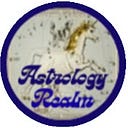Is Zodiac Part of Astrology? (Answered!)
This article may include affiliate links, which means that if you click on one and decide to purchase something, I may receive a small commission at no extra cost to you.
(Human directed ai content.
Is Zodiac Part of Astrology?
Yes, the zodiac is a fundamental component of astrology. It consists of twelve astrological signs, each associated with specific characteristics and celestial positions that purportedly influence human affairs and personalities. Astrologers use the zodiac to interpret and predict events based on the positions of celestial bodies relative to these signs.
Astrology, the ancient practice that seeks to understand personality traits, predict future events, and analyze human behavior through celestial movements, often brings to mind the concept of the zodiac. But is the zodiac truly an integral component of astrology, or are they distinct entities? To unravel this question, we delve into the depths of both astrology and the zodiac.
The Zodiac: A Celestial Calendar
The zodiac, derived from the Greek word “zōidiakòs,” meaning “circle of animals,” is essentially a celestial coordinate system divided into twelve segments, each representing a specific constellation. These constellations are apparent bands of celestial sphere through which the sun, moon, and planets appear to move across the sky over the course of a year.
🌟 Unleash Your Cosmic Potential with Moon Reading — Claim Your Free Personalized Reading Now! 🌟
☪ MOON READING OFFICIAL WEBSITE: https://bit.ly/moonreading--official
The twelve divisions of the zodiac are: Aries, Taurus, Gemini, Cancer, Leo, Virgo, Libra, Scorpio, Sagittarius, Capricorn, Aquarius, and Pisces. Each segment corresponds to approximately 30 degrees of celestial longitude and is associated with certain personality traits, characteristics, and symbolism.
Astrology: The Study of Celestial Influence
Astrology, on the other hand, is a belief system that suggests a correlation between celestial phenomena and events on Earth, including human affairs and natural occurrences. It encompasses various practices, including natal astrology (the study of individual birth charts), horoscopic astrology (the interpretation of celestial charts), and mundane astrology (the analysis of world events).
Central to astrology is the idea that the positions and movements of celestial bodies at the time of a person’s birth can provide insights into their personality, relationships, and life events. Astrologers often use the zodiac as a framework for interpreting these celestial influences, attributing specific traits and tendencies to each zodiac sign based on its associated constellation.
The Relationship Between Zodiac and Astrology
While the zodiac and astrology are closely intertwined, they are not synonymous. The zodiac serves as a visual representation of the ecliptic, the apparent path of the sun across the sky, divided into twelve segments. Astrology, on the other hand, is the interpretative framework that assigns meaning and significance to the positions and movements of celestial bodies within the zodiac.
In essence, the zodiac provides the backdrop against which astrological interpretations unfold. Each zodiac sign acts as a symbol, embodying certain archetypal qualities and characteristics that astrologers believe influence individuals born under its influence. However, astrology extends beyond the zodiac, incorporating other celestial bodies such as planets, asteroids, and luminaries, each of which contributes unique energies and influences to astrological readings.
Criticism and Skepticism
Despite its enduring popularity, astrology has faced criticism and skepticism from various quarters. Skeptics argue that there is no empirical evidence to support the claims of astrology and that its principles lack scientific validity. Critics also point to the lack of consistency and replicability in astrological predictions, highlighting the subjective nature of astrological interpretations.
Furthermore, advances in astronomy and our understanding of the cosmos have revealed discrepancies between the tropical zodiac used in Western astrology and the actual positions of the constellations. This has led some to question the relevance and accuracy of astrological practices based on the zodiac.
🌟 Unleash Your Cosmic Potential with Moon Reading — Claim Your Free Personalized Reading Now! 🌟
☪ MOON READING OFFICIAL WEBSITE: https://bit.ly/moonreading--official
Conclusion
In conclusion, while the zodiac forms an integral part of astrology, they are distinct concepts with their own significance and symbolism. The zodiac provides the framework within which astrological interpretations are made, assigning personality traits and characteristics to each of its twelve segments. Astrology, meanwhile, is the belief system that seeks to understand the influence of celestial bodies on human affairs, using the zodiac as a tool for interpretation.
Whether one subscribes to the tenets of astrology or regards it with skepticism, the enduring fascination with the zodiac and its associations underscores humanity’s enduring fascination with the cosmos and our place within it. Whether it’s through the lens of astrology or scientific inquiry, the exploration of celestial phenomena continues to captivate and inspire us, inviting us to ponder the mysteries of the universe and our interconnectedness with the cosmos.
Read More…
Astrological Retrogrades: Nurturing Inner Transformation through Self-Reflection
LEGAL INFORMATION
Any links in this article, may be affiliate links. Using my links is free at no extra cost to you, and helps to support my channel. Information in
the articles is not business or investment advice, and these articles are created primarily for entertainment purpose. Thank you for your support!
